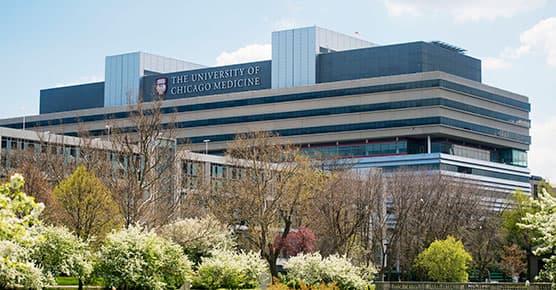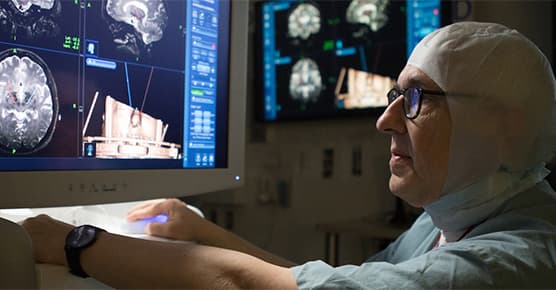Types of Spine Tumors

Cancer Care Second Opinions
Seeking the opinion of an expert in cancer care can ease your mind and help you feel more secure in choosing the right treatment plan for you.

Participate in a Clinical Trial
Our brain and nervous system cancer experts are actively conducting clinical trials of new and promising treatments.

Neurology & Neurosurgery
Expert Care for a Range of Nervous System Conditions
Request an Appointment for Cancer Care
We are currently experiencing a high volume of inquiries, leading to delayed response times. For faster assistance, please call 1-855-702-8222 to schedule your appointment.
If you have symptoms of an urgent nature, please call your doctor or go to the emergency room immediately.
For Referring Physicians
To refer a patient for cancer care, please call UCM Physician Connect at 1-800-824-2282.
By submitting this form you acknowledge the risk of sending this information by email and agree not to hold the University of Chicago or University of Chicago Medical Center liable for any damages you may incur as a result of the transfer or use of this information. The use or transmittal of this form does not create a physician-contact relationship. More information regarding the confidentiality of this request can be found in our Privacy Policy.
* Indicates required field

